By Sharyn L. Decker
Lewis County Sirens news reporter
CHEHALIS – A Portland consultant visited by members of the Lewis County Sheriff’s Office less than a month after Ronda Reynolds death testified on Friday it had all the earmarks of suicide.

Ronda Reynolds
Rod Englert gave his opinion to lead detective Jerry Berry and detective Sgt. Glade Austin after viewing limited evidence, he said, that included photographs of the scene, a pillow with its case, a green plaid electric blanket and a gun.
Englert, testifying by telephone in the coroner’s inquest, said he has 48 years in law enforcement and specializes in crime scene reconstruction and blood pattern analysis.
Much of the information he shared Friday was based on pictures of Reynolds’ body laying on its left side on the floor of the closet in her Toledo home on Dec. 16, 1998.
More specifically, his conversation was based on five pages of notes he took on Jan. 13, 1999. On Friday afternoon, Englert said he hadn’t received from the coroner’s office copies of the photos from the film he gave Berry and Austin after the visit.
Englert described various reasons for his conclusion her body was not moved after she was shot, primarily viewing the blood on her neck and face, noting gravity and that he’d been told a pillow was said to have been covering her head.
He didn’t see signs of a struggle, he testified.
The trajectory of the bullet would be consistent with the position she was in, Englert said.
Englert had an explanation for those who wondered with firearms expert Marty Hayes how Reynolds possibly could have held the gun to her own head with the wound path that resulted.
It’s a fallacy to assume a right handed person would always shoot themselves with their right hand, he said.
“Most often what happens in cases like this is the barrel of the weapon is held with the right hand and you just reach up and pull the trigger with the left thumb,” he said.
One key observation is the site of the bullet’s entry is a classic site, Englert said. If Reynolds pulled the trigger, she went to a classic site, her right temple area, he said.
The gun and her hands were positioned the way he would have expected, he said. He would have been suspicious if the weapon was actually in her hand, he said.
Lewis County Coroner Warren McLeod noted to Englert he hadn’t seen a photo of the body and gun together, and that he’s heard varying testimony throughout the inquest on where the gun was positioned before it was removed.
The consultant said he looked at the .32 caliber Rossi handgun, and was told a fiber had been removed from it that was similar to the blanket.
He examined the pillow itself and found it had no defects, but said the pillow case – very near its edge – had a bullet defect and what appeared to be powder burns, he said.
On the top edge of the electric blanket, he observed blood stains and what also might be powder stains, he said.
Englert noted his experience in what he said were hundreds and hundreds of suicides: They go to a secluded place, maybe out in the woods or in a closet, getting under something, he said.
“I’ve seen several of them in closets,” he said.
There’s not evidence, that he saw, someone else could have done it without her being aware, he said.
“Could she have been asleep? It’s possible,” Englert said.
He added before his testimony ended that, according to the literature, 99 percent of all contact gunshot wounds – as was Reynolds – are suicides.
Englert was the final witness in the first week of McLeod’s inquest. His testimony followed the testimony of Barb Thompson, mother of the former trooper, who had just told the inquest jury she was certain her daughter was murdered.
Thompson after the proceedings adjourned, declined two of her friends’ attempts to get her to stay the night in Chehalis with them. She said she wanted to get home to Spokane for the weekend.
“I need some alone time,” Thompson said.
Reflecting just briefly on what she’d just heard in the courtroom, she said: “Rod Englert made some good points. I’ll have to think about it.”
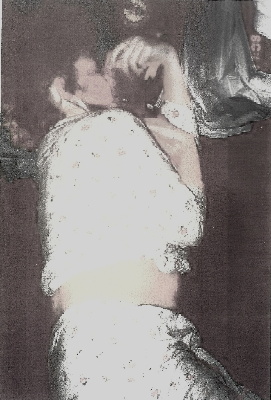
Photo of Ronda Reynolds on floor of closet, without gun or electric blanket, Dec. 16, 1998


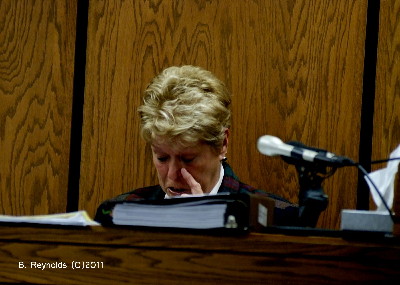
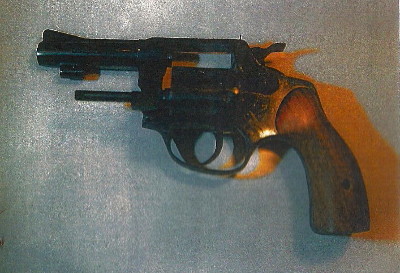
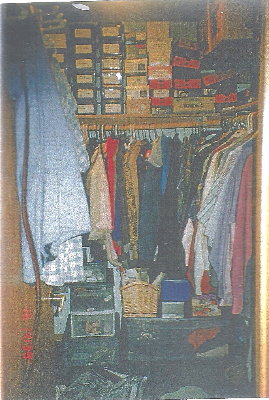
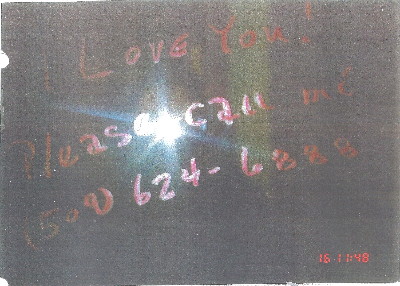
 Join us
Join us